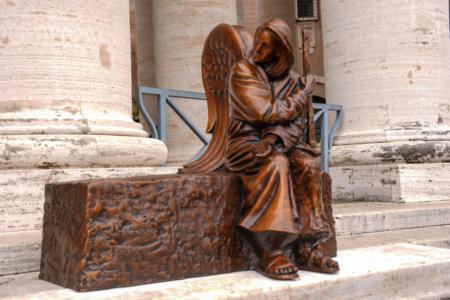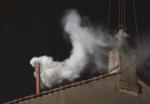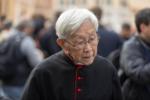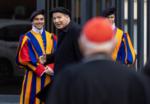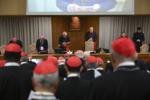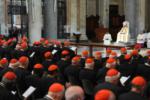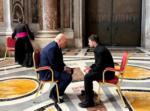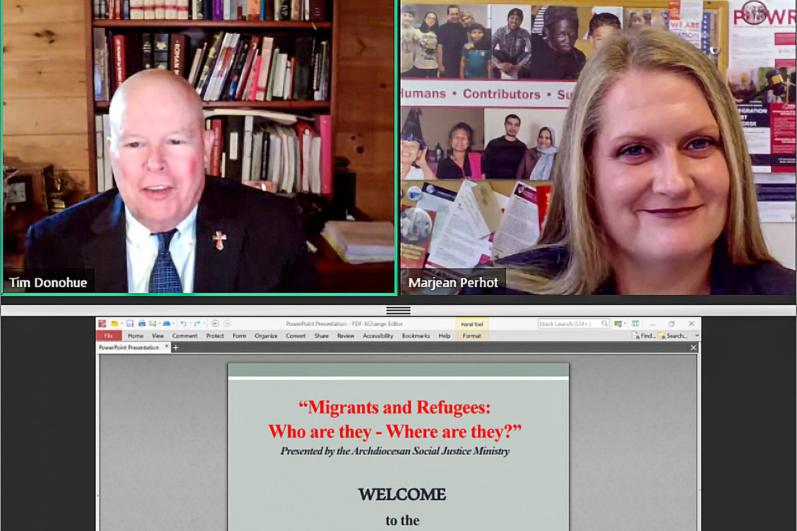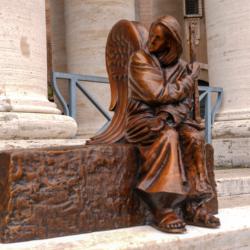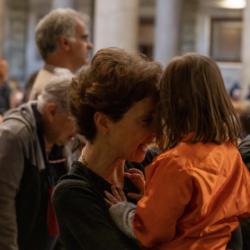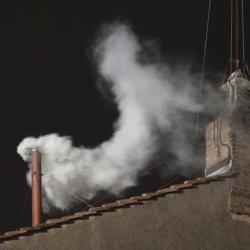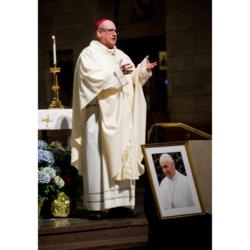Social Justice Convocation focuses on immigration
BOSTON -- The 14th annual Archdiocesan Social Justice Convocation took place on Oct. 22, this year examining the issue of immigration on both a global level and a local level.
The convocation this year sought to answer a few key questions: Why are there over 100 million displaced people globally? Who are they? Where are they? And what can Catholics do, as individuals and as faith communities, to serve those in need?
The virtual event included a Mass celebrated by Cardinal Seán P. O'Malley, Bishop Robert Reed, and Father Robert Kickham. Then, Cardinal O'Malley offered welcoming remarks to those joining the convocation.
The speaking program began with remarks by keynote speaker Sean Callahan, president and CEO of Catholic Relief Services (CRS). He began by saying that he thinks the public debate about immigrants and refugees is "all wrong."
"Migration is not the problem. Migration is actually the solution for many people. The problem comes in many other areas," Callahan said, such as violence, climate change, poverty, and lack of opportunities for education and jobs.
CRS works with the Church throughout the world, both to assist those who are migrating, and to improve conditions so that people do not need to leave their homes.
"We see around the world that people want what we want: safety and security, opportunities for education, healthcare, and work. That is what your Church provides," Callahan said.
He recalled meeting people in El Salvador who, with help from CRS and the local Church, implemented climate smart agriculture techniques to manage their farms during increasing droughts. One farmer told Callahan that he had been preparing to migrate with his family, but after picking up these techniques from his neighbors, they could afford to stay.
"The beauty of these initiatives is once you introduce it into one area, if they see the farm is green and successful and people are marketing their goods, it starts spreading, and we can scale the investments that we've made, so that more people are reached and more assistance can be provided," Callahan said.
During the QandA following his talk, Callahan explained that CRS operates in 115 countries, each of them at the invitation of the local Catholic Church. They work with the Caritas, local bishops' conferences, and justice and peace groups to make sure they understand the situation in each country. Callahan said that even in areas where Catholics are a minority of the population, the Church is often the biggest social service network after the government.
"We have found that if you use this wonderful network of the Church, which not only has those institutions of the Church but schools and healthcare facilities, we can do tremendous work," Callahan said.
The other keynote speaker was Marjean Perhot, VP of Refugee and Immigrant Services for Catholic Charities of the Archdiocese of Boston (CCAB).
Perhot reported that, last year, CCAB served over 16,000 migrants. However, she acknowledged that data does not truly answer the question, "Who are they?" She said she believes the answer can be found in the Bible, in the Church's teachings on social justice, and when remembering Jesus.
"Refugees and immigrants are human beings who deserve to be loved, respected, and treated with dignity and compassion," she said.
She pointed out that the Holy Family were forced to leave their home, turned away from shelter, and persecuted.
"When we see people through a lens of faith, we can't call them illegal beings or aliens or invaders or criminals. We have to see their God-given dignity," Perhot said.
She spoke at length about CCAB's efforts to help refugees fleeing Afghanistan after the Taliban takeover last year. Over 30 parishes, synagogues, and nonprofit groups became sponsors or POWIR sites -- Parishes Organizing to Welcome Immigrants and Refugees -- to welcome Afghans arriving in the Boston area.
"What I find most fulfilling is to remember that when I'm looking at a refugee or immigrant, I could be looking at myself, and I know I'm looking at the face of God," Perhot said.
After her presentation, Perhot moderated a discussion featuring two panelists: Ed Marakovitz of the Paulist Center Immigrant Advocacy Group, and Phil D'Agati of Refugee Resettlement at CCAB.
The Paulist Center and St. Cecilia Parish in Boston created one of the largest POWIR sites last year. Marakovitz explained that they were already looking to expand their Immigrant Advocacy Group when the Taliban took over Afghanistan. The parish immediately stepped up, organizing committees, recruiting volunteers, and raising $230,000 to support multiple Afghan families. Among other things, volunteers arranged their housing, welcomed them at the airport, and provided transportation and other assistance as they adjusted to their new homes.
D'Agati talked about the formation of "welcome circles" for Ukrainians fleeing the war with Russia. CCAB has been invited to participate in a pilot program with the USCCB to replicate POWIR on a larger scale by creating "welcome circles" for Ukrainian refugees. This program would match Ukrainians hoping to come to the U.S. with communities that would be equipped to support them.
"I ask you to consider joining with us. It is very needed. We are called to it, by Jesus and by our Catholic faith," Marakovitz said.
As the convocation wrapped up, Pat Dinneen shared updates on the work of the Social Justice Ministry, of which she is the chairperson. One notable announcement was their formation of a bureau of speakers, who will be trained to go into parishes and give talks about particular social justice issues.
Michael Ashenuga, a member of Holy Name Parish in West Roxbury, offered the closing prayer.
A recording of the Social Justice Convocation can be viewed on the Social Justice Ministry website, www.bostoncatholic.org/health-and-social-services/social-justice-ministry.
